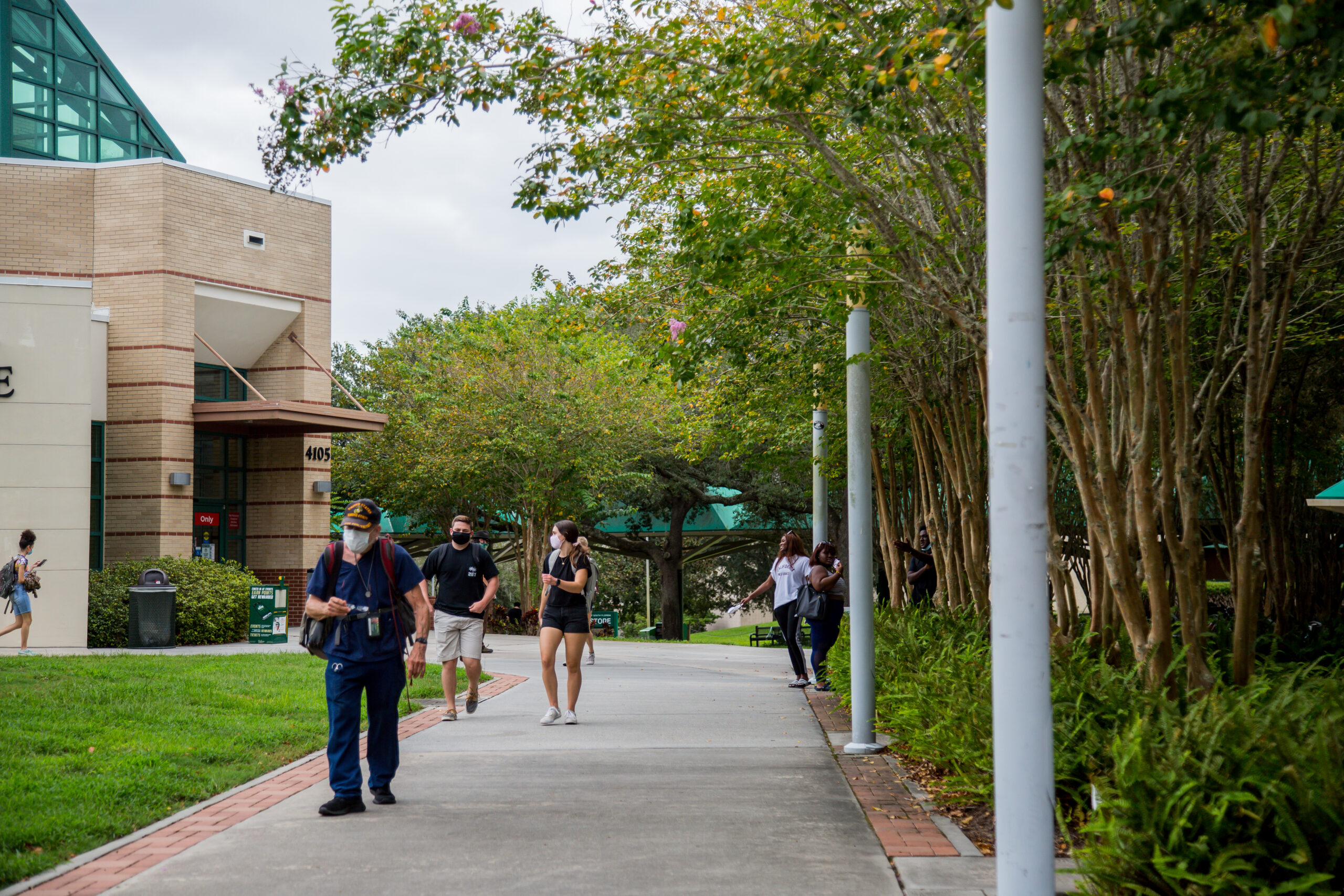Variant COVID-19 strains should not impact USF reopening timeline, USF Health experts say

New strains of the COVID-19 virus have been identified all over the world, but even if these strains spread across the Tampa Bay area, USF’s plans for an in-person Summer B course schedule should not be affected, according to USF Health experts.
Known as B.1.1.7, the coronavirus variant strain was identified in COVID-19 patients around the U.K. on Dec. 14, and so far, have already spread across the country. As of Jan. 9, 63 cases of the strain have been confirmed in the U.S., 22 of which are in Florida.
The variant, however, will not slow down USF’s reopening plans. Dean of the USF Morsani College of Medicine Charles Lockwood said the university’s administration will not need to halt their reopening plans in light of the new variant.
“Because the vaccine, so far, we think, will protect against [the B.1.1.7 strain], there should be no disruption,” he said. “We will still continue on our current path.”
The current plan, according to a letter from USF Provost Ralph Wilcox sent to USF faculty Jan. 8, is to increase in-person class availability by Summer B of this year, which is set to begin June 28.
“USF is planning for a full return to on-campus classroom delivery and activities beginning fall 2021,” Wilcox said in the letter.
This strain has been a cause for concern among experts because of its 70% transmissibility rate compared to the 36% transmissibility rate of the original strain. The almost doubled rate means that anyone who comes in contact with a person who has the B.1.1.7 strain of the virus is significantly more likely to catch it than the original COVID-19 strain.
The B.1.1.7 strain, however, does not have a higher mortality rate, according to Lockwood. He said it is only perceived as more dangerous because of the speed at which it spreads.
“[The mutation in the B.1.1.7 strain] affects the spike protein in a complicated way that allows it to more easily bind to the receptor on human cells called the H2 receptor, but it doesn’t modify the structure,” he said.
The B.1.1.7 strain of the virus binds more easily to receptor cells, which allows it to pass from person to person more easily. But, because the H2 receptor’s structure isn’t significantly modified by the new strain, antibodies in the vaccine will still work because the virus has not changed into something completely new.
Since they intend to move forward with fully in-person activities, Wilcox said in the letter that the administration, faculty and staff will remain vigilant by keeping up with public health conditions that could alter this plan.
One of these changes could be the emergence of the recently identified South African variant, known as B.1.351, in the U.S. The strain has been found in Brazil, Finland, Japan, South Africa, South Korea, Switzerland and the U.K., according to The Wall Street Journal.
While this strain has not been found in the U.S. yet, it could prove threatening if it did emerge, according to Michael Teng, associate dean of the Morsani College of Medicine.
“The variant from South Africa has a different kind of constellation of mutations, and one of those mutations that it has is uncommon and a little bit worse because people have done some lab studies and found that this particular mutation reduces your antibody response to the virus,” Teng said.
“We don’t know what that means functionally in terms of if we’re protected or not, but the lab studies make us want to track that pretty carefully because it is a variable concern.”
If it is found that the antibody response is reduced, it could mean that the currently developed vaccines are not effective against the B.1.351 strain. If this is true, and it does reach the U.S., USF plans could be put on hold.
However, this does not mean that any procedures will need to change significantly, according to Teng. He said current USF mitigation procedures will still work against both of these variants.
“The virus can’t mutate through masks, so as long as we’re wearing masks, washing hands and staying physically distant, it doesn’t really matter what mutation is in the virus,” he said. “A virus that can’t infect somebody can’t do anything so the mitigation efforts have to continue.”
These efforts include mask wearing, physical distancing and keeping classrooms and lecture halls at a lower capacity. Mitigation behaviors will need to continue into the fall semester if the newest strain is not found to be prevented by the vaccine.
The B.1.1.7 and B.1.135 strains are not the first variant strains of COVID-19, according to Teng, and they will not be the last. Variant strains are extremely common because viruses, which do not originate in humans, like COVID-19, mutate in order to adapt to new species.
“This happens all the time,” Teng said. “Actually, if you look at all the sequences of the viruses that are coming out, every one of them has a few mutations. Most of them don’t mean anything, but once in a while, it gets a mutation that allows it to replicate better and those are the ones we worry about.”
If people continue to wear masks, physically distance and receive vaccinations, Teng is confident that no variant will be a threat to the USF community.
“I’m generally kind of a skeptical person, but I am a little bit more optimistic about some semblance of normalcy by the end of the summer or maybe fall [2021],” he said.







